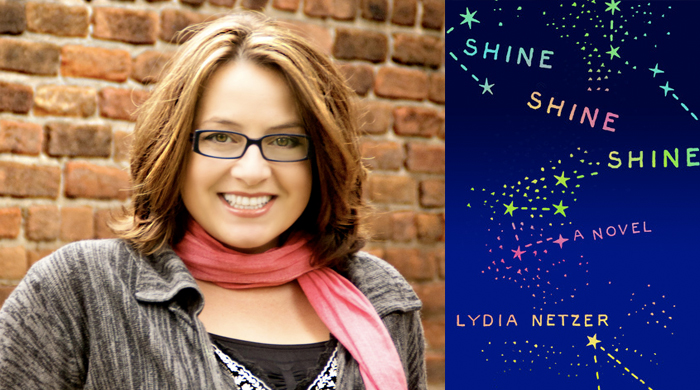Lydia Netzer’s debut novel “Shine Shine Shine” blasts through locales as far flung as Burma, Norfolk and the moon to land among my favorite novels.
Fueled by strange and nuanced characters, emotional heft and serious action, this stellar novel deftly probes the dark matter of marriage and motherhood. Over two generations, it mines the characters’ long-held secrets and festering wounds to reveal depths of strength and vulnerability.
Netzer brings many talents to bear on this project—deeply imagined characters, fresh humor and cinematic sweep. She moves assuredly from the subatomic particles of identity—the stories we tell ourselves—to the supergalactic forces of creation and birth, literally labor. And she does so without undue adherence to chronology or order. I loved its messy, far-ranging ambition.
The roving, offbeat novel is at once a romance involving two remarkable individuals bound together from youth, a belated-coming-of-age story and a moving portrait of motherhood in damning circumstances. It all orbits a woman, named Sunny, who appears to be anything but.
While other novels have earned more critical acclaim, this is one whose characters lodged themselves in my gut. It’s the kind of story that you digest, instead of merely read. Its ideas—particularly about women’s obligations to those we love and the deep reserves of fortitude we must tap to fulfill them—must be broken down, absorbed and consumed by the body.
Over and over again, the high drama of car crashes and intimate betrayals is grounded in the telling details of Sunny’s personal topography—the lies she tells, the objects she covets, the illusions she nurtures. As a reader, I witnessed Sunny reimagine herself through retellings of her story on the playgrounds of her youth, in an elective poetry class in college, at a housewarming party in adulthood, in her own mind. More importantly, as a woman-mother-wife, I empathized with the thorny tangles of manipulation and maturation evident within her shifting personal narratives.
“When you are sitting on a three-legged stool and you’ve kicked out all three legs, but you’re still sitting upright, must you assume that you’re just so good, you levitate? Or, must you assume that you were sitting on the ground all along?,” Sunny ponders when another of life’s meteors comes crashing her way. “When there’s nothing left to burn, maybe you have to set yourself on fire.”
Ultimately, like its protagonist, this novel doesn’t just shine, it blazes.


